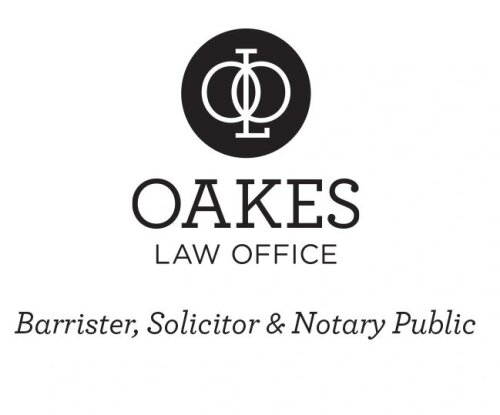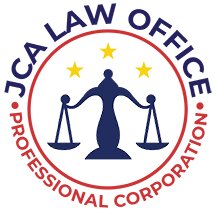Best Estate Planning Lawyers in Toronto
Share your needs with us, get contacted by law firms.
Free. Takes 2 min.
List of the best lawyers in Toronto, Canada
About Estate Planning Law in Toronto, Canada
Estate planning is the process of organizing and managing your assets to ensure they are distributed according to your wishes after you pass away. In Toronto, Canada, estate planning is governed by specific laws to protect the rights of individuals in managing and transferring their estates.
Why You May Need a Lawyer
While estate planning can be done without a lawyer, there are several situations where seeking legal help is crucial:
- You have a complex estate: If you have significant assets, overseas properties, or a business, a lawyer can help you navigate the complexities and ensure your wishes are carried out appropriately.
- You have minor children or dependents: A lawyer can assist in appointing guardians and establishing trusts to protect and provide for your loved ones.
- You want to minimize taxes: An experienced estate planning lawyer can help you develop strategies to minimize taxes and maximize the value of your estate for your beneficiaries.
- You want to avoid family disputes: By creating a clear and legally binding estate plan, you can minimize potential conflicts among family members.
- You need assistance with wills and trusts: A lawyer can help draft and update wills, establish trusts, and ensure all legal requirements are met.
Local Laws Overview
In Toronto, Canada, there are key aspects of local estate planning laws to consider:
- Wills: A valid will must be in writing, signed by the testator (person making the will), and witnessed by two individuals who are present at the same time.
- Probate: If the estate includes real property, bank accounts, or investments, probate may be required. Probate is the legal process of validating a will and distributing assets according to its terms.
- Estate Administration Tax: In Ontario, a tax called the Estate Administration Tax (commonly known as probate fees) is applicable to estates that require probate. The amount is based on the value of the estate.
- Power of Attorney: A power of attorney allows someone to make decisions on your behalf if you become incapacitated. It's essential to ensure the document meets the legal requirements of Toronto.
Frequently Asked Questions
1. Do I need a will?
Having a will is highly recommended for anyone who wishes to have control over the distribution of their assets after death. Without a will, your estate will be distributed according to the laws of intestacy, which may not align with your wishes.
2. When should I update my estate plan?
You should review and update your estate plan whenever significant life changes occur, such as marriage, divorce, birth of a child, or acquisition of substantial assets. Regularly reviewing your plan every few years is also beneficial.
3. What is a trust, and do I need one?
A trust is a legal arrangement where assets are held by a trustee for the benefit of beneficiaries. Trusts can provide various benefits, such as minimizing taxes, protecting assets, and controlling the distribution of wealth. Whether you need one depends on your specific circumstances and goals, which a lawyer can help assess.
4. Can I appoint a family member as an executor?
Yes, you can appoint a family member as an executor in your will. However, it is important to choose someone who is trustworthy, capable, and willing to take on the responsibilities. Consulting with a lawyer can help you make an informed decision.
5. How can I minimize estate taxes?
There are several strategies to minimize estate taxes, such as gifting assets during your lifetime, establishing trusts, and utilizing tax-exempt accounts. A knowledgeable estate planning lawyer can provide guidance based on your specific financial situation.
Additional Resources
- Ontario Justice Education Network (OJEN) - Provides educational resources and programs on estate planning in Ontario. Visit their website at: ojen.ca
- Law Society of Ontario - Offers a directory of estate planning lawyers in Toronto. Visit their website at: lso.ca
- Ontario Ministry of the Attorney General - Provides information on wills, estates, and probate in Ontario. Visit their website at: attorneygeneral.jus.gov.on.ca
Next Steps
If you need legal assistance in estate planning, consider taking these steps:
- Research and compile a list of experienced estate planning lawyers in Toronto.
- Contact a few lawyers to schedule initial consultations.
- Come prepared with questions and information about your estate, assets, and goals.
- Discuss your needs, concerns, and expectations with the lawyers you meet.
- Select a lawyer who demonstrates expertise, understanding, and a compatible approach to estate planning.
- Work with the chosen lawyer to develop and execute your personalized estate plan.
Lawzana helps you find the best lawyers and law firms in Toronto through a curated and pre-screened list of qualified legal professionals. Our platform offers rankings and detailed profiles of attorneys and law firms, allowing you to compare based on practice areas, including Estate Planning, experience, and client feedback.
Each profile includes a description of the firm's areas of practice, client reviews, team members and partners, year of establishment, spoken languages, office locations, contact information, social media presence, and any published articles or resources. Most firms on our platform speak English and are experienced in both local and international legal matters.
Get a quote from top-rated law firms in Toronto, Canada — quickly, securely, and without unnecessary hassle.
Disclaimer:
The information provided on this page is for general informational purposes only and does not constitute legal advice. While we strive to ensure the accuracy and relevance of the content, legal information may change over time, and interpretations of the law can vary. You should always consult with a qualified legal professional for advice specific to your situation.
We disclaim all liability for actions taken or not taken based on the content of this page. If you believe any information is incorrect or outdated, please contact us, and we will review and update it where appropriate.














